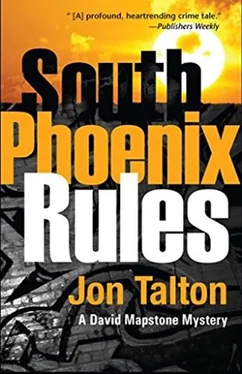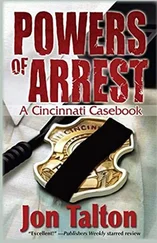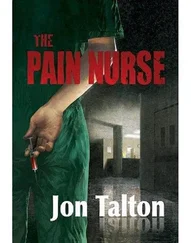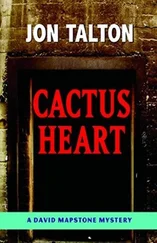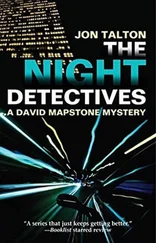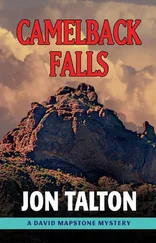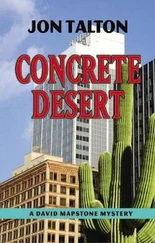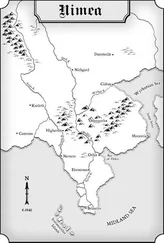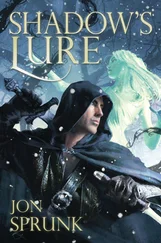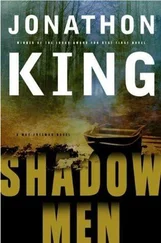I pulled up another chair and sat before her as she held the objects. Tears dimmed the bright eyes. She took both of my hands. “My big brother, Johnny.”
She instructed the younger woman. “Bring them.”
We sat in silence, her diminutive, bony hands clutching mine, until Christine returned. She opened a wooden box and began to hand out objects.
“This was Johnny in 1943. He sent it to us in Poston, from his training.”
The photo showed a cocky smile on a young soldier. “He trained in Mississippi, if you can believe that,” Christine said.
“He was his own man, Johnny,” the old woman said. “He was a rebel, had to do it his way. Didn’t want to follow the old ways. Wanted to marry who he wanted. He was such an American boy, even though they called him a Jap. But he was a good brother and a great soldier. He didn’t want to stay in Poston. He and his friends enlisted as soon as they could. It wasn’t easy. Lots of resentment about what the government did to us. But Johnny was going to show them.”
More photos: Johnny with other soldiers; aboard a troop ship; another man. “This was his friend Shigeo,” the old woman said. “He was killed on the beachhead at Salerno.” She touched each of the photographs as if they were religious icons. “Johnny wrote us every other day.” She pointed to stacks of letters inside the box, neatly tied with silk bands. “Johnny fought all the way up Italy and into France, with the rest of the 442nd.” Her face clouded. “Then he came back home…”
Christine said quickly, “The 442nd Regimental Combat Team was made up exclusively of Nisei who chose to fight for their country. It was the most highly decorated unit in the Army’s history-twenty-one Medal of Honor winners. Meanwhile, their relatives were forced to live in the relocation camps.” She allowed her first smile. “But you know that.”
Next came shadow boxes with medals and ribbons. One was a Silver Star. It was the third highest decoration for bravery and this one looked as if it had just come from the War Department. In a laminated cover was a citation for Johnny Kurita, for gallantry in action against the enemy at the battle of Biffontaine.
All this was living history, right before me. I let it wash me along, carry away my impatience, and then distract me from my heartbreaks and losses. Against all this, mine seemed small.
Two hours went by at warp-speed before I finally asked my questions. Her hearing was keen, so I could speak in a normal voice. Her memory was vivid and precise. The answers she gave knocked me sideways. The same was true for Christine.
“GiGi, I’ve never heard this before.”
“What was the point? We knew we couldn’t get justice in Phoenix. The other Japanese on Baseline tried to help us, but they were just getting re-established. Most of the whites didn’t care. Oh, we grew so many things. The South Mountains shielded us from the frosts. The whites just said we were taking the best land. What was the point in carrying around such bitterness.” She nodded to Christine. “None of you young ones knew. Except…well, he read Johnny’s letters, so I eventually told him.”
It was only then that GiGi wanted to know, so politely, how I had found Johnny’s dog tags.
After the mandatory hassles at Sky Harbor, I was back in the Prelude by six that evening. The sunset was ordinary. As I took the exit out the east side of the airport, Peralta reached me.
“Where have you been?”
“Scholarship.”
He silently weighed my answer. “We’re taking down the Jesus Is Lord Pawn Shop. Want a front-row seat? You can sit in the command van with me and the A.G. Those guys you saw loading guns into the SUV? They work for Antonio. We’ve got probable cause. We’ve got the buy on tape, the fake paperwork. We’ve got enough now to shut down the new supply route. All the muckety-mucks from Washington signed off at last. So we’re finally going in. It’ll be fun to watch Barney frog-marched off to prison.”
I told him no thanks.
“Why not?” It was a demand, not a question.
“I’m just trying to put all this out of my mind.”
“Good luck,” he said.
On the freeway south, I made another call. I had an obligation to repay and the clock was running against me.
***
The walnut with eyebrows opened the door himself. He stood, slight inside his loud golf shirt, blinking at me.
“May I help you?”
I just pushed my way past him. “Where are your punks?”
He stepped outside, did a careful check of the street. The only vehicle in sight was Lindsey’s Honda Prelude. He turned back.
“I don’t even know you. Why have you forced your way into my house?”
It was a good act and he kept it up in his old-man voice, even after he had produced the Beretta and begun a careful search of me, not just for a weapon but also for a wire. When he was satisfied, he used the gun barrel to prod me into the Arizona Room.
“Now, Dr. Mapstone, you have become an intruder on my property, so I can shoot you at will and be perfectly within Arizona law.”
“But you’re curious why I’m here.”
“You do surprise me. Sit.” He hospitably waved the pistol toward a leather sofa. The room was large, decorated at some expense but still vulgar: cowboy paintings, a bejeweled saddle on a stand, a grandfather clock encased in faux adobe, and gigantic leather furniture.
I dropped into the sofa and he gingerly sat across from me, his hips barely on the seat, as if he needed to be ready to spring up at any moment.
We seemed alone, but I asked again about his teenage henchmen.
“Back home for dinner with their families. I wouldn’t want them falling in with the wrong crowd.”
“And what a mentor they’ve found. Salvatore “Sal the Bug” Moretti.”
He cocked his head in mirth.
“If we had the time, I’d love to know how you found me.”
Part of my brain sized up that angle: He didn’t know that I had followed him from the Stuffed Beaver. The honor student I interrogated with the dashboard: I told him Moretti’s house was under surveillance and his phones were tapped; if he went back or warned Sal, he’d be arrested. Tom Holden had made the call I wanted-with the persuasion of Demetrius Smith-that a California bounty hunter was after him and he needed to lay low and not risk bringing the cops to Moretti’s house. Too many days had passed, so Sal had assumed that his identity and location were secure. But he didn’t strike me as someone who would be introspective in the face of the crisis now sitting on his leather sofa. As he said, if we had the time…
So I just said four words, the lethal information I had gained from my friend the organized crime historian.
“Eugene Costa, your grandfather.”
One black eyebrow went up.
“He wasn’t just a gofer for Harley Talbott,” I said. “He was a middle-man between Talbott and the Chicago mob. The DeSimone case was bullshit, of course. But the articles mentioned Eugene Costa. Just a bit player. A nobody, unless you knew what you were looking for. Unfortunately…” My throat started to close and I slowed myself down. “Unfortunately, Robin happened to run Eugene Costa through some old property records and put that information as a footnote to the report we gave you.”
“You’re a genius.” He aimed the gun at my chest.
“She didn’t know anything. Neither did I.”
“They always say that.” His voice sounded thirty years younger and I could imagine the many executions he had carried out. In fact, I knew about ten of them. He must have negotiated a sweet deal with the feds to avoid the needle. If I were thirty days younger, I might have been afraid, might have been anxiously worried about time-just like that little boy at Kenilworth School, watching the clock. None of that was in my mind now. I settled in the sofa and spread my arms over the back, feeling the cool leather on my hands.
Читать дальше
